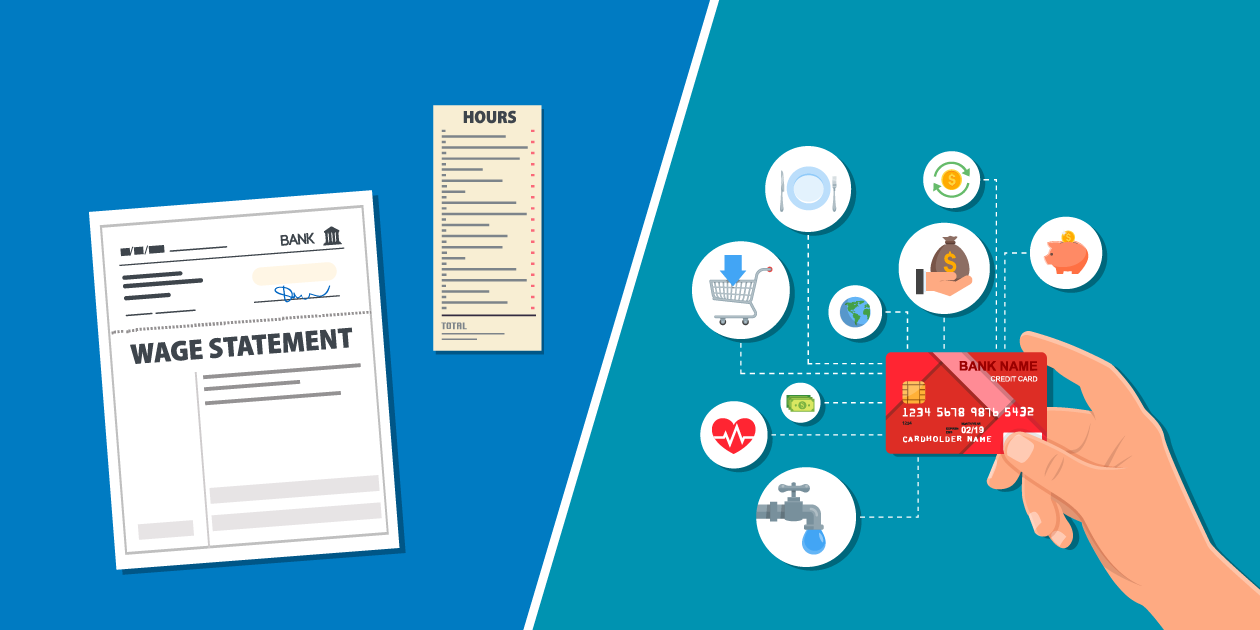Payroll Debit Cards in California: What’s the Law on Cash Alternatives?
Employers have several incentives for paying their employees in the form of payroll debit cards. But is it legal in California?

The concept of payroll debit cards is simple: rather than getting paid through cash or a check, employees receive their payments on a bank card. The employees can then use that card to spend money, like a credit or debit card. Or they can go to a bank or ATM and withdraw money to get the cash.
Employers sometimes use these cards because they allow them to save money associated with checks. Distributing and mailing paper checks can be costly, and paying employees in cash is usually not feasible for a business. In some cases, employers may receive benefits from their bank for switching over to a payroll debit card system.
The risk in using these cards, however, is the financial burden on the workers. The use of a payroll debit cards sometimes shifts all payroll costs to the employee. The banks, for instance, may charge numerous fees for using these cards, including processing fees, fees for using ATMs, and fees for inactivity. The banks may also benefit by receiving new customers—the employees.
Because the banks may gain new business from the use of payroll debit cards, they sometimes provide financial incentives for employers to issue the payroll debit cards to their employees. So it’s easy to see why the trend toward payroll debit cards is growing among employers. But is this kind of payment legal in California?
Chapter 1
Cash Alternatives are Generally Allowed☍ Click to Copy a Link to This Chapter


In California, the law on payroll debit cards is relatively sparse. No court cases have definitively decided whether these kinds of payments are permissible and there is no law directly on point. Related laws, however, provide guidance on alternative payment methods.
Generally, employers must pay their employees in a form that is negotiable and payable in cash.1 A check, for instance, can be taken to a bank and cashed. Checks are therefore a method of pay that is payable in cash.
An employer may not, however, issue a form of payment that would be discounted if turned into cash.2 So, an employer cannot issue a check from a bank that will charge a fee when cashing it.
Chapter 2
Payroll Debit Cards Must Be Freely Cashable☍ Click to Copy a Link to This Chapter


The form of payment the employer chooses must be able to be cashed at an established place of business in the state. For the most part, this means that the payment method must be allowed to be cashed at a bank. The name of the bank must appear on the form of payment.3 If the business cashing the payment is someone other than a bank, their address must also appear on the form of payment.4
Employers may not offer any scrip or coupon that is not redeemable in cash.5 This, in essence, prevents business from paying their employees with coupons that can only be used in their store. (Like company scrips.)
Employers, or their managers and agents, may be guilty of a misdemeanor if they violate these rules.6 They could also be liable to the employees for civil damages.
Overall, however, employers are allowed to pay their employees in cash alternatives, as long as they can be turned into cash easily and without a fee. Employees must also receive an itemized paystub with their payment.7
Because employers can pay their employees in cash alternatives, they are permitted to make payments through direct deposit or through the use of payroll debit cards. In fact, the law specifically permits employers to deposit funds in a bank of the employee’s choice.8
Chapter 3
Payroll Debit Card Programs Should Be Voluntary☍ Click to Copy a Link to This Chapter


The California Labor Commissioner’s Office, also known as the Division of Labor Standards Enforcement (Opens in new window) (DLSE), has stated in an opinion letter that the law does not prohibit the use of payroll debit cards.9 It is important, however, that participation in the payroll debit card program is optional for the employee.10
So, under the DLSE’s interpretation, employers may give their employees the option of using payroll debit cards, but may not require their use. Any payroll debit card program must be completely voluntary and all the details of the program should be disclosed to the employees.11
References
Labor Code, § 212 (Opens in new window), subd. (a)(1).↥
Labor Code, § 212, subd. (a)(1).↥
Labor Code, § 212, subd. (a)(1).↥
Labor Code, § 212, subd. (c).↥
Labor Code, § 212, subd. (a)(2).↥
Labor Code, § 215.↥
Labor Code, § 203, subd. (a).↥
Labor Code, § 213, subd. (d).↥
See DLSE Opinion Letter 2008.07.07 (July 7, 2008), available here (Opens in new window).↥
Holak v. Kmart Corp. (E.D.Cal. Dec. 11, 2012, No. 1:12-CV-00304 AWI MJS) 2012 U.S.Dist.LEXIS 176331, at *17 [suggesting that “payroll debit card programs do not violate the Labor Code where the employees are fully informed of the service and it is represented as an alternative method for wage payment for which their participation is optional.”].↥
See DLSE Opinion Letter 2008.07.07-2 (July 7, 2008), available here (Opens in new window).↥